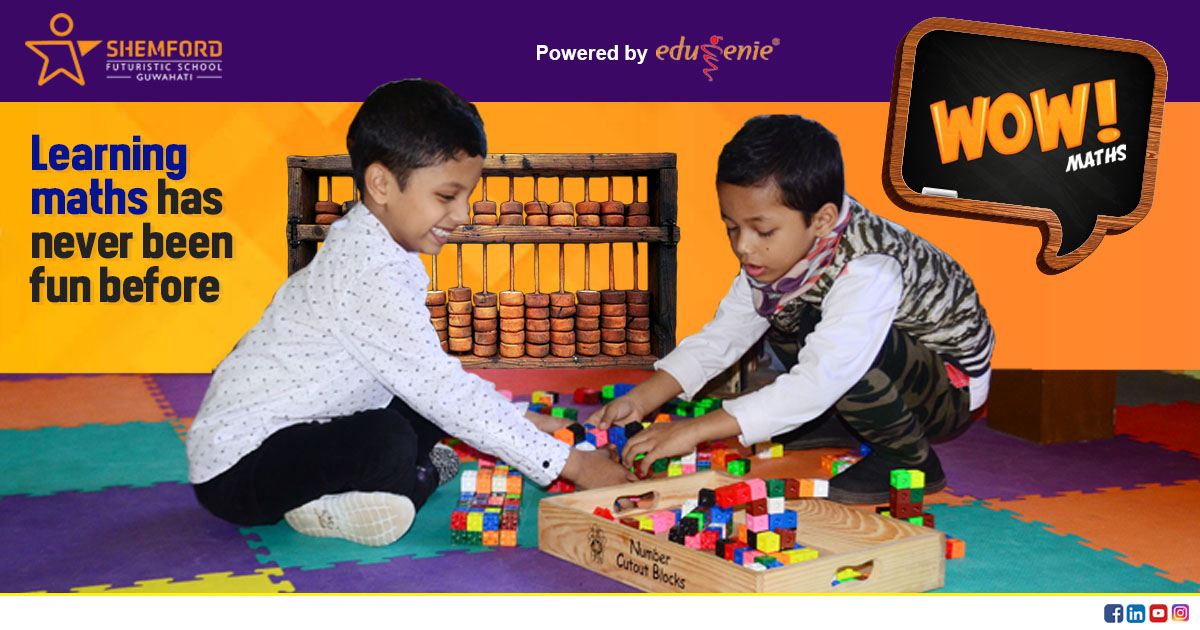
Shemford Summer Camp 2021: WOW MATHS GAMES
Mathematics is not about numbers, equations, computations, or algorithms: It only about understanding. And Wow Maths specially designed to meet the mathematical needs and wants of primary and middle school students in India, Engaging in math games has unfolded to make online classes engaging, being in top schools in Assam, which is in the northeast point of India, we must ensure these activities build skills and fortify wow maths lesson content.
Here are few magic math games (wow maths) that we try in our Shemford Summer Camp:
-
All over the block
Play all over the Block as a minds-on pastime, using only a ball to habitude almost any math skill. First, we put together a list of questions related to mastery, Second, we allow students to stand in a ring. Finally, give one student the ball and read audibly a question from the list. Students must pass the ball clockwise around the ring, and the one who started with it must answer the question before receiving it again. If the student inappropriately answers, he or she can pass the ball to a classmate for the next question. If the student correctly answers, he or she chooses the next contestant.
-
101 & Out
Playing a few rounds of 101 and Out is a fun way to end math class. As the name implies, the goal is to score as close to 101 points as possible without going over. We divide our class in half, giving each group a die along with paper and a pencil. Groups take turns rolling the die, strategizing to count the number at face value or multiply it by 10. For example, students who roll a six can keep that number or turn it into 60. This game quickly grows competitive, boosting the excitement level in your math class.
-
Stand Up, Sit Down
Playing Stand up, sit down as a mind on pursuit, adapting the struggle according to student age and skill level. The philosophy of the game is candid: You pick a number, and students must stand if the answer to an equation you read audibly matches that number. If it is not, they remain seated in a ring. You can modify requirements for standing as needed. For example, you can tell students to stand if the answer is:
- Greater than 10
- An even number
- A multiple of three
You can also be radical from addition to subtraction and from multiplication to division.
-
100s
We assemble our class in a circle to play 100s as an agile warm-up before your lesson. We give students a set of numbers to choose from — such as multiples of five to a maximum of 20 – as they take turns adding out loud in a clockwise direction. The student who says or passes 100 is out. You will start again until only one participant is left. Although the game is simple, you can change how it is played to suit the skills of your students. For example, they may have to multiply by fours instead of adding by files.
 AIR CONDITIONED
AIR CONDITIONED




